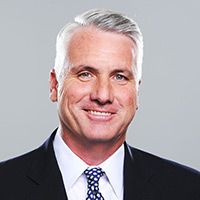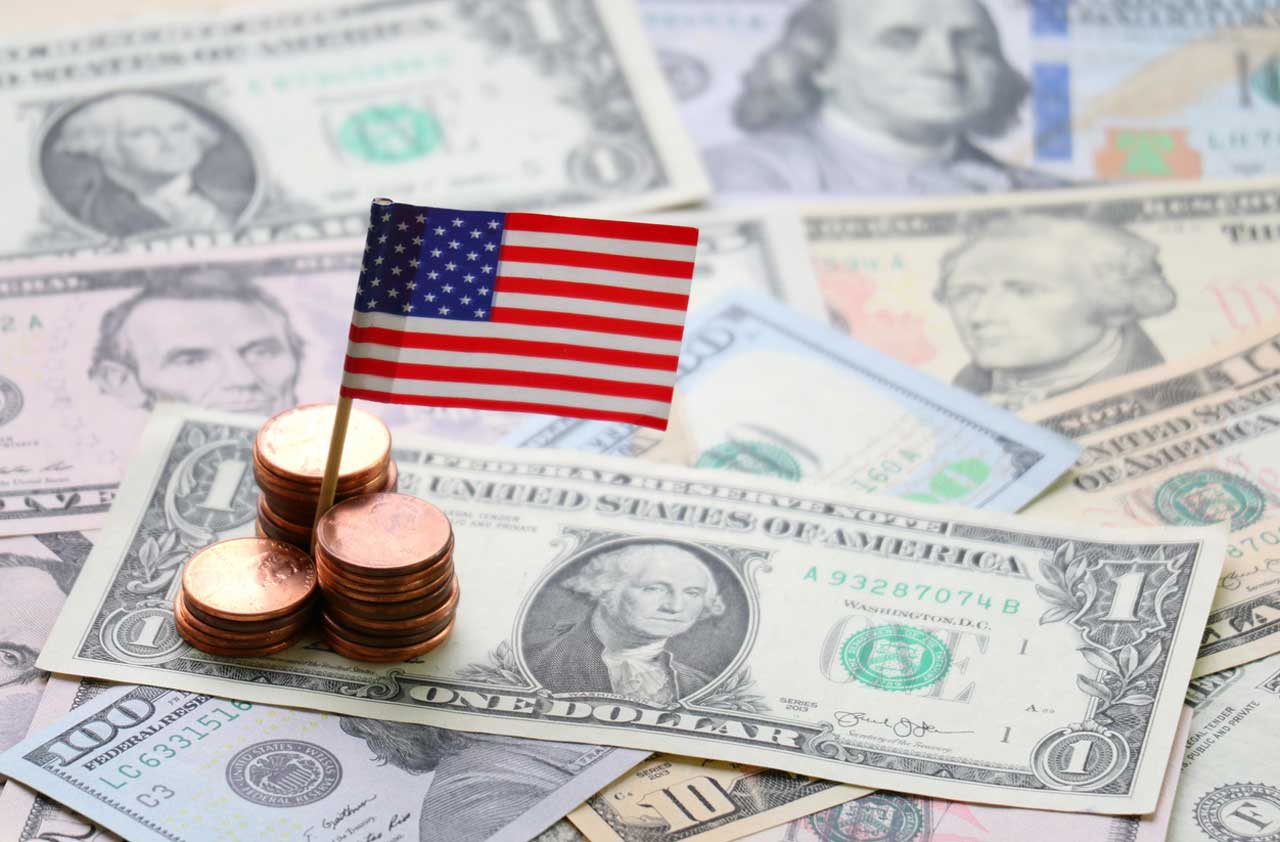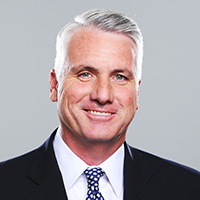Trump-like Executive Actions to Take for Your Portfolio
Model President Trump and take your investments into your own hands to make them great again. Three steps to consider.


Profit and prosper with the best of Kiplinger's advice on investing, taxes, retirement, personal finance and much more. Delivered daily. Enter your email in the box and click Sign Me Up.
You are now subscribed
Your newsletter sign-up was successful
Want to add more newsletters?

Delivered daily
Kiplinger Today
Profit and prosper with the best of Kiplinger's advice on investing, taxes, retirement, personal finance and much more delivered daily. Smart money moves start here.

Sent five days a week
Kiplinger A Step Ahead
Get practical help to make better financial decisions in your everyday life, from spending to savings on top deals.

Delivered daily
Kiplinger Closing Bell
Get today's biggest financial and investing headlines delivered to your inbox every day the U.S. stock market is open.

Sent twice a week
Kiplinger Adviser Intel
Financial pros across the country share best practices and fresh tactics to preserve and grow your wealth.

Delivered weekly
Kiplinger Tax Tips
Trim your federal and state tax bills with practical tax-planning and tax-cutting strategies.

Sent twice a week
Kiplinger Retirement Tips
Your twice-a-week guide to planning and enjoying a financially secure and richly rewarding retirement

Sent bimonthly.
Kiplinger Adviser Angle
Insights for advisers, wealth managers and other financial professionals.

Sent twice a week
Kiplinger Investing Weekly
Your twice-a-week roundup of promising stocks, funds, companies and industries you should consider, ones you should avoid, and why.

Sent weekly for six weeks
Kiplinger Invest for Retirement
Your step-by-step six-part series on how to invest for retirement, from devising a successful strategy to exactly which investments to choose.
During his inaugural address, President Donald Trump said, “From this day forward, it's going to be only America first.”Like his campaign slogan, Make America Great Again, this call to action resonated with a particular segment of Americans who want lower taxes, more jobs and less political corruption. Trump started this work by signing a host of executive orders in the first month of his presidency.
Politics aside, is there a lesson to learn from Trump about how to better your own financial life?
It’s time to make your portfolio great again
Executive actions are directives presidents gives to the federal government and related agencies regarding politics and policy. Similarly, make sure to direct your financial future by emphasizing safety, security and control in your portfolio.
From just $107.88 $24.99 for Kiplinger Personal Finance
Become a smarter, better informed investor. Subscribe from just $107.88 $24.99, plus get up to 4 Special Issues

Sign up for Kiplinger’s Free Newsletters
Profit and prosper with the best of expert advice on investing, taxes, retirement, personal finance and more - straight to your e-mail.
Profit and prosper with the best of expert advice - straight to your e-mail.
1. Aim for safety
President Trump aims to secure U.S. borders including building a wall along the border with Mexico to “make America safe again.”
How can you do the same for your portfolio?
- Enforce boundaries between investments. Don’t let bonds with creeping correlations to stocks hold your portfolio back. Empower your investments with a healthy dose of true diversifiers, investment strategies that historically lowered risk and increased returns in declining markets.
- Stop chasing diversification for diversification’s sake. Ensure your portfolio has a blend of passive and active investments—stocks, bonds and alternative investments—to be well positioned in all market conditions.
2. Amp up security
Promising a strong America abroad, the president has promised to spend whatever is necessary to empower the military and improve national security.
Securing your portfolio requires a handful of actions that should make you much more than you spend:
- Rebalancing is key. Taking a moment once a year to reinvest your earnings from high-performing assets into underperforming ones balances risk in your portfolio.
- Look for quality. Security is often related to quality. Most people know to ask about the investment strategy and track record. Few go the extra step to find out if the money manager invests in his own strategy.
3. Stay in control
There’s no doubt President Trump likes control over his message. On Day One, he got a secure smartphone and is even keeping his personal Twitter rather than defaulting to the @POTUS handle.
Keep control of your investments by actively:
- Controlling emotions. Both fear and greed rob you of returns. Sticking to a long-term plan and staying out of the fray of day-to-day market movements can help investors do what they instinctively know is right – buy low and sell high.
- Finding the right partner. Whether that be a robo-adviser, a flesh-and-blood financial adviser or a trusted money manager, the average investor would do well to have an expert help them craft a financial plan.
Don’t let events happening around you dictate your financial legacy. Instead, move forward, take executive action and make your financial future great again.
Stephen Scott is an alternatives and hedge fund investment veteran, with more than 25 years of experience in due diligence, risk management and index construction.
Profit and prosper with the best of Kiplinger's advice on investing, taxes, retirement, personal finance and much more. Delivered daily. Enter your email in the box and click Sign Me Up.

Stephen Scott is an alternatives and hedge fund investment veteran, with more than 25 years of experience in due diligence, risk management and index construction.
-
 Dow Leads in Mixed Session on Amgen Earnings: Stock Market Today
Dow Leads in Mixed Session on Amgen Earnings: Stock Market TodayThe rest of Wall Street struggled as Advanced Micro Devices earnings caused a chip-stock sell-off.
-
 How to Watch the 2026 Winter Olympics Without Overpaying
How to Watch the 2026 Winter Olympics Without OverpayingHere’s how to stream the 2026 Winter Olympics live, including low-cost viewing options, Peacock access and ways to catch your favorite athletes and events from anywhere.
-
 Here’s How to Stream the Super Bowl for Less
Here’s How to Stream the Super Bowl for LessWe'll show you the least expensive ways to stream football's biggest event.
-
 How to Add a Pet Trust to Your Estate Plan: Don't Leave Your Best Friend to Chance
How to Add a Pet Trust to Your Estate Plan: Don't Leave Your Best Friend to ChanceAdding a pet trust to your estate plan can ensure your pets are properly looked after when you're no longer able to care for them. This is how to go about it.
-
 Want to Avoid Leaving Chaos in Your Wake? Don't Leave Behind an Outdated Estate Plan
Want to Avoid Leaving Chaos in Your Wake? Don't Leave Behind an Outdated Estate PlanAn outdated or incomplete estate plan could cause confusion for those handling your affairs at a difficult time. This guide highlights what to update and when.
-
 I'm a Financial Adviser: This Is Why I Became an Advocate for Fee-Only Financial Advice
I'm a Financial Adviser: This Is Why I Became an Advocate for Fee-Only Financial AdviceCan financial advisers who earn commissions on product sales give clients the best advice? For one professional, changing track was the clear choice.
-
 I Met With 100-Plus Advisers to Develop This Road Map for Adopting AI
I Met With 100-Plus Advisers to Develop This Road Map for Adopting AIFor financial advisers eager to embrace AI but unsure where to start, this road map will help you integrate the right tools and safeguards into your work.
-
 The Referral Revolution: How to Grow Your Business With Trust
The Referral Revolution: How to Grow Your Business With TrustYou can attract ideal clients by focusing on value and leveraging your current relationships to create a referral-based practice.
-
 This Is How You Can Land a Job You'll Love
This Is How You Can Land a Job You'll Love"Work How You Are Wired" leads job seekers on a journey of self-discovery that could help them snag the job of their dreams.
-
 65 or Older? Cut Your Tax Bill Before the Clock Runs Out
65 or Older? Cut Your Tax Bill Before the Clock Runs OutThanks to the OBBBA, you may be able to trim your tax bill by as much as $14,000. But you'll need to act soon, as not all of the provisions are permanent.
-
 The Key to a Successful Transition When Selling Your Business: Start the Process Sooner Than You Think You Need To
The Key to a Successful Transition When Selling Your Business: Start the Process Sooner Than You Think You Need ToWay before selling your business, you can align tax strategy, estate planning, family priorities and investment decisions to create flexibility.